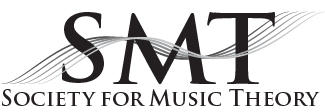Editor’s Message
[1] Our first issue of 2004 includes Janet Schmalfeldt’s Keynote Address from the SMT National Meeting in Madison, Three Essays on Syntonic Tuning by Roger Wibberley, and book reviews written by Michelle Hakanson and Richard Bass. In her Keynote Address entitled, “Coming Home,” Janet Schmalfeldt reflects on the metaphor of coming home as it relates to musical works by Robert Schumann, Clara Schumann, and others. Musical score images with analytical markings for five complete movements are provided in GIF and DjVu formats.
[2] In “Quid non ebrietas dissignat? Willaert’s didactic demonstration of Syntonic tuning,” Roger Wibberley offers a new appraisal of Syntonic diatonic and Pythagorean diatonic tuning in this secular motet. Graphic and audio examples illustrate Syntonic and Pythagorean tunings in opposition. A new realization of the lost bassus voice is provided in the author’s four-voice setting. Willaert’s work has long generated curiosity and controversy. We hope that this essay may stimulate new responses and comments.
[3] The second essay by Roger Wibberley, “Syntonic Tuning: A Sixteenth-Century Composer’s Soundscape,” includes graphic and audio examples from works by Josquin Desprez, Willaert, and Jachet. The third essay, “Syntonic Tuning: Creating a Model for Accurate Electronic Playback,” provides a practical guide to the application of tuning systems for MIDI playback using Finale notation software. Finale files are provided for download.
[4] Two book reviews appear in this issue. Michelle E. Hakanson reviews Carol J. Oja’s Making Music Modern: New York in the 1920s. Richard Bass reviews Chromatic Transformations in Nineteenth-Century Music by David Kopp. Also provided in the issue are listings of recently completed dissertations, job opportunities, and general announcements.
[5] I am happy to announce that Marion Guck (University of Michigan) and Peter Schubert (Mcgill University) have been appointed to the MTO Editorial Board. I thank former board member, John Snyder (University of Houston) for his outstanding service. I also wish to take this opportunity to thank Eric Isaacson and the members of the SMT Networking Committee for all their work in restoring Boethius, the SMT server.
[6] Submissions to MTO are welcome at any time. We encourage readers to post their reactions to this issue's articles and review. The mto-talk email list is available to MTO subscribers (subscription is free) for online discussion of any MTO-related topic. To post to mto-talk, simply send an email message to mto-talk@societymusictheory.org. Longer responses may be submitted for publication in the Commentary section of the next issue. These should be formatted and submitted according to MTO Author Guidelines.
[7] All MTO volumes dating back to our first issue in 1993 can be accessed from the contents page at http://www.socie tymusictheory.org/mto/issues/issues.html.
![]()
|
Timothy Koozin, Editor Updated
03 July 2013 |
